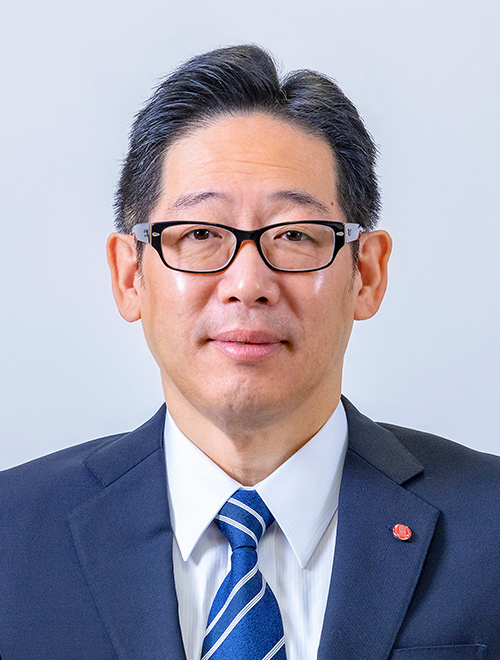About the School of Medicine

and problem-solving abilities backed
by the basic of medicine,
with the aim of becoming a high-quality doctor who “treats people as a person”.
Training doctors with a rich sense of humanity
Medical science and care have made remarkable progress, and analysis of diseases has now advanced to the molecular level. The evolution of medicine continues to accelerate thanks to a succession of breakthrough discoveries, such as the discovery of etiological genes and the elucidation of the mechanisms of immune acquisition. While the medical field is helping to create a society enjoying unprecedented longevity in history, there is a mountain of issues to be addressed, including the identification of pathogenic mechanisms and the establishment of treatments for intractable diseases such as cancer and AIDS.
In addition, with the passing of the Organ Transplant Act in Japan and thought-provoking news coverage of the debate on life manipulation due to advances in analysis at the genetic level, we have entered an era in which medicine must be explored not merely within the medical community, but as a deeply rooted issue pertaining to fundamental human issues, involving law, ethics, and other considerations.
The School of Medicine aims to nurture the rich humanity that is indispensable for physicians of the future.
Message from the Dean of the Faculty of Medicine

Nurturing high-quality doctors as medical scientists, medical technicians, and human beings, based on the principle of "people treating people"
Needless to say, knowledge and skills supporting medical treatment are important aspects of the study of medicine. At the same time, we are entering an era in which the study of medicine is regarded also as the study of ethics, and should be pursued as a discipline deeply related to the roots of life and humanity, as exemplified by new concepts such as regenerative medicine and gene therapy. In addition, the relationship between doctors and patients in medicine is changing from the one-way, doctor-driven medicine of the past to a mutually participatory and patient-centered medicine in which both parties cooperate in medical treatment, discussing and choosing the best method until they settle on the best courses of treatment. Therefore, doctors of the future must possess not only medical knowledge and skills, but also a high level of ethics and a rich sense of humanity. The School of Medicine aims to nurture high-quality doctors as medical scientists, medical technicians, and human beings, based on the principle of "people treating people".
In order to nurture high-quality doctors, the School of Medicine has adopted the Model Core Curriculum for Medical Education. Instead of focusing on having students memorize vast quantities of information, this curriculum efficiently teaches basic content, covering the Guideline of the National Examination for Physicians' License. In addition, our educational staff is committed to teaching with an awareness of improving students' ability to apply their knowledge, and is conducting a series of training programs (Faculty Development (FD)) for class reform. Furthermore, we are currently analyzing in detail trends among undergraduate students after their enrollment and post-graduate training (Institutional Research (IR)), selecting students in accordance with the kinds of doctors in demand (Admission Policy), and fulfilling our mission to send these doctors out into society (Diploma Policy).
The main curriculum includes courses in areas of medical expertise from the first year, as well as nursing experience, emergency resuscitation practice, and facility tours, providing students with exposure to hands-on medical care from an early stage. The second year and first half of the third year focus on basic medicine, but each student also has access to equipment for practical training. In addition, students in some years undergo tutorial-based education, a form of Problem Based Learning (PBL), in which students work in small groups of 7 to 8 to investigate, think, discuss, and finally solve problems on their own. Tutors (faculty members in charge) correct students only when they try to go in the wrong direction. This helps students develop problem-solving skills and self-study habits. Clinical medicine from the second half of the third year to the fourth year is a short-term intensive education program, in which lectures that integrate internal medicine and surgery by organ are conducted to provide students with a thorough education to develop clinical skills prior to the start of clinical practice. In addition, at the end of the fourth year of study, two national inter-university common achievement tests, namely the CBT (Computer Based Testing) and the OSCE (Objective Structured Clinical Examination), are administered to evaluate the knowledge and skills required for clinical practice. In the fifth and sixth years, clinical clerkships, in which students participate in clinical practice in outpatient clinics and hospital wards under the guidance of supervising doctors, are also incorporated into the program. This allows them not only to acquire the practical knowledge and skills necessary to become doctors, but also to learn how to deal with patients and to prepare for national medical examinations.
